31 de agosto 2020

Children of Exile: The Births “Sowing Hope” in the Camp of Nicaraguan Farmers

PUBLICIDAD 1M
PUBLICIDAD 4D
PUBLICIDAD 5D
Weekly News Report: less citizen security in the first semester of 2020, more arbitrary arrests, and an emotional funeral in the city of Jinotega
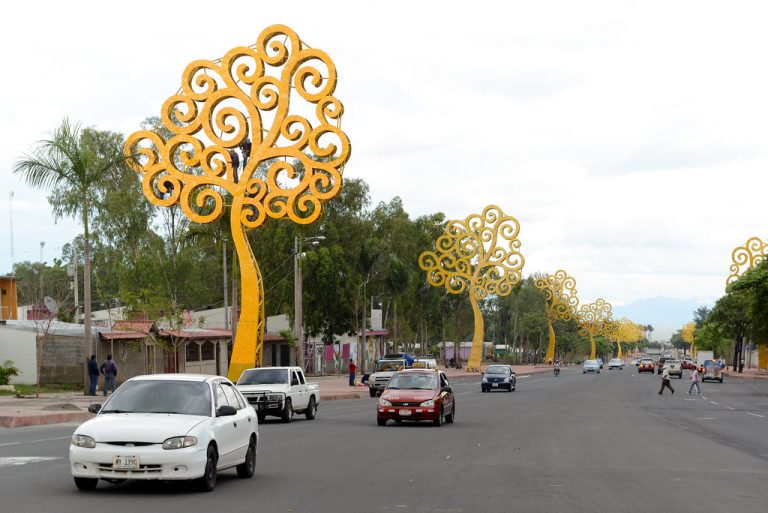
Weekly News Report: There has been more violence in Nicaragua in the first semester of 2020. Plus
These are the news that you need to know today, August 31st | Specialists in citizen security and defense have warned that the release of common criminals and the existence of paramilitaries, which have happened since the political crisis began in 2018, has led to an increase in crime throughout 2020.
This increase in insecurity has caused a rise of 338% in violence during the first semester of the year, compared with 2019. For sociologist Elvira Cuadra, the political violence from the past years has extended to other forms of violence, which is related to common crimes.
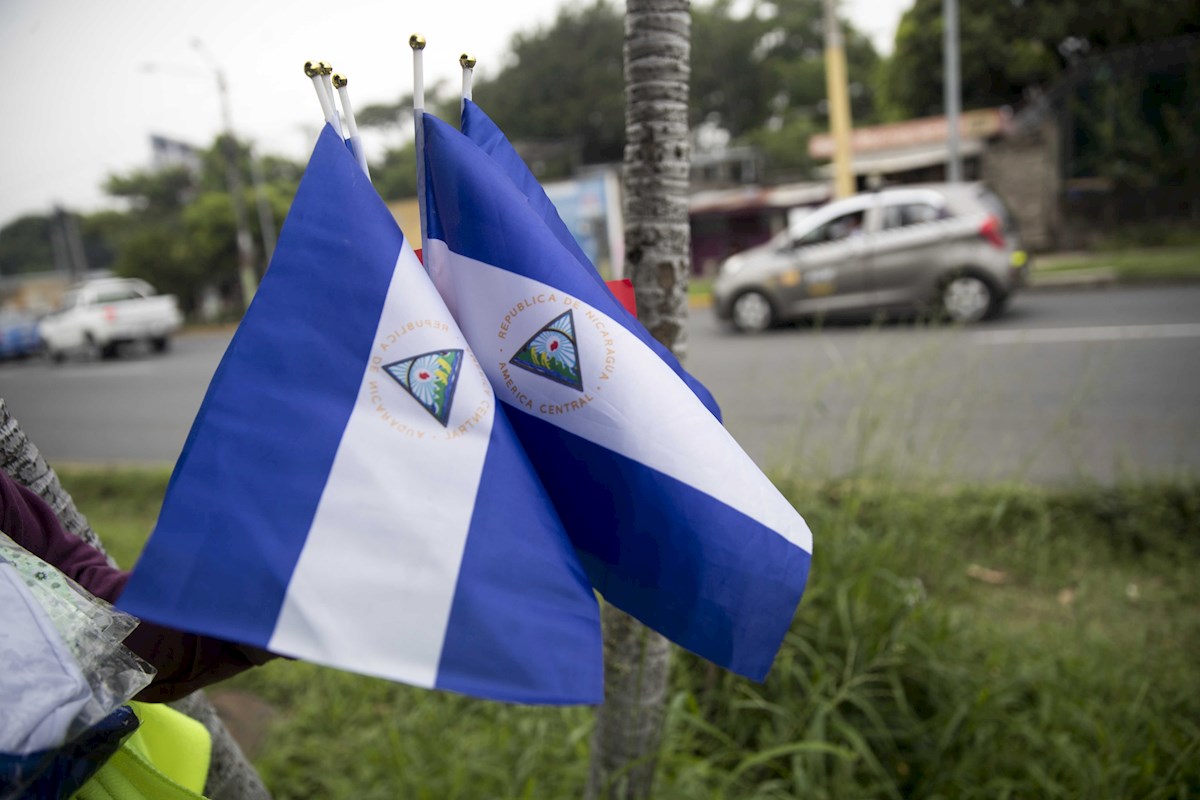
A street vendor offers Nicaraguan flags during his workday in Managua. Photo: EFE | Jorge Torres
The National Police of the city of San Carlos (Río San Juan) assaulted and detained a merchant named Tania González Solís for selling Nicaraguan flags, a national symbol that was widely used by Nicaraguans during the protests against the regime of Daniel Ortega and Rosario Murillo.
The National Police justified the arrest by claiming that González’s flags were distorted because the rainbow on the shield allegedly resembled roadblocks.
González told La Prensa newspaper that she complained to the agents: “If altering the national symbols is a crime, then detain La Chayo”.
In Nicaragua, "Chayo" is the abbreviation of Rosario, the name of the first lady and vice president, and who has distorted the national emblem.
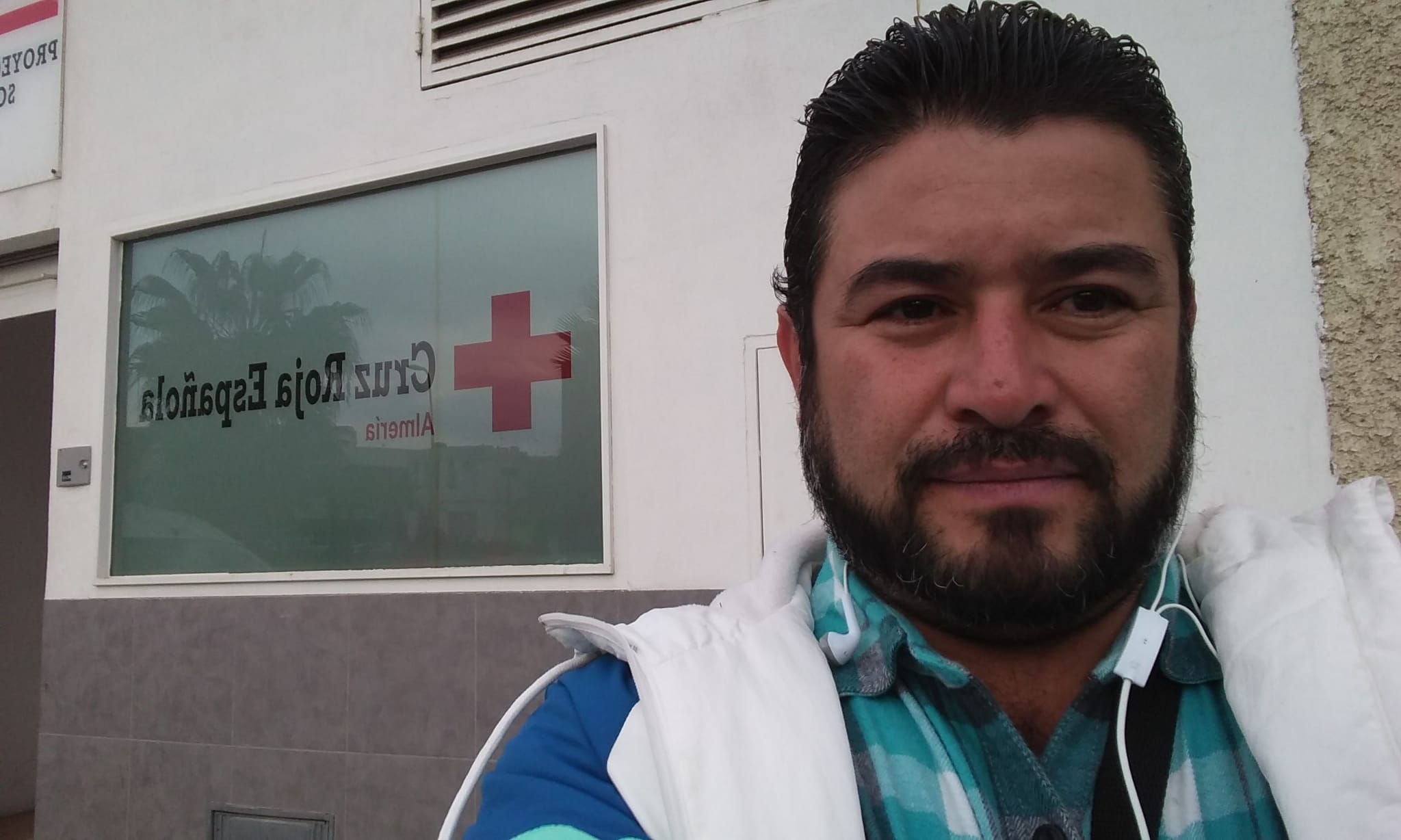
Eleazar Blandon moved to Spain to find a better paying job. Photo: Courtesy | Confidencial
The body of Nicaraguan Eleazar Blandón was buried on Friday, August 28, in the city of Jinotega, after being repatriated from Spain, the country where he died earlier this month from a heat stroke.
Blandón’s death sparked a debate about the precarious conditions in which hundreds of undocumented citizens work in Spain, including dozens of Nicaraguans.
In Jinotega, family and friends held a mass at the cathedral. According to international media, one of the musicians that participated in the event wore a shirt that said “It’s not working, it’s slavery”, referring to the working conditions of undocumented immigrants in Spain.
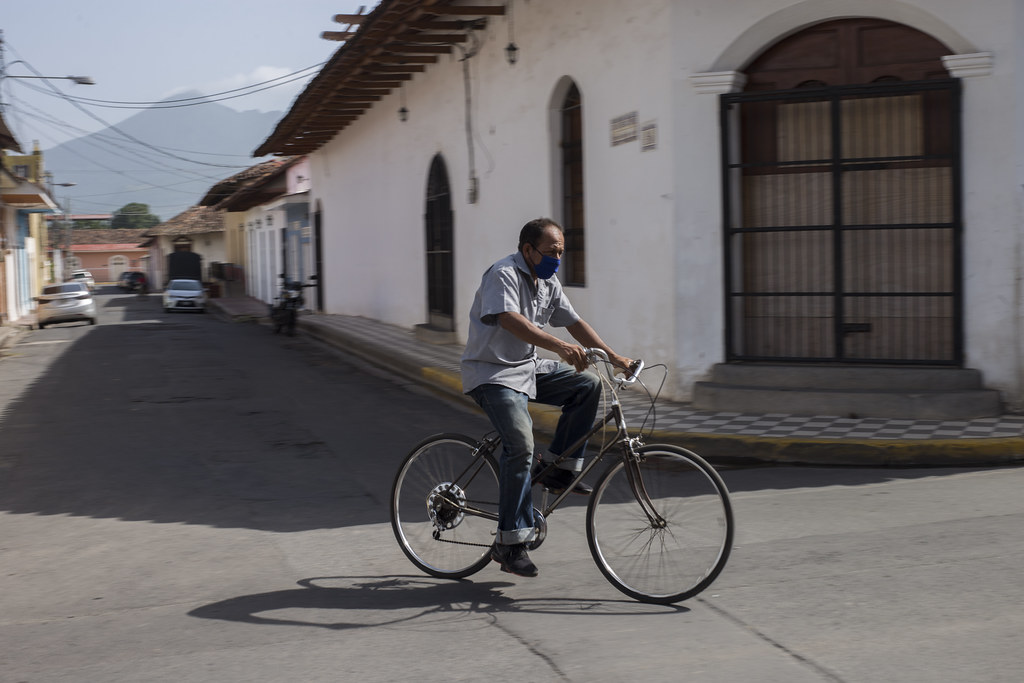
A man bikes around the city of Granada, wearing a face mask. Photo: Confidencial
The independent Citizen Observatory raised the number of suspected Covid-19 cases in Nicaragua to 9,998. In its latest report, the Observatory registered 2,540 deaths linked to the pandemic.
Managua, Matagalpa, León, and Masaya, are the departments that report the largest number of suspicious cases and the most deaths associated with Coronavirus.
The Government of Nicaragua only acknowledged 137 deaths from the novel coronavirus, and 4,494 confirmed infections.
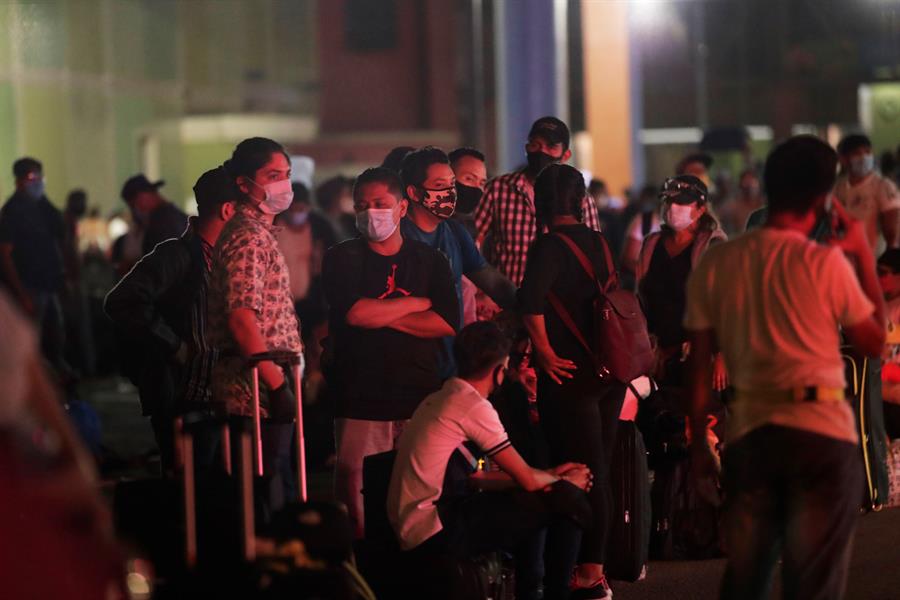
Photo: EFE
Vice president Rosario Murillo alerted some 300 Nicaraguans who are stranded in Panama, that they may not enter Nicaragua if the Covid-19 tests lose their 72-hour validity.
The Nicaraguans in question have not been able to leave Panama due to problems on a road, caused by seasonal rains. To return to Nicaragua, the government requires nationals to present a negative Covid-19 test, with a validity of 72 hours.
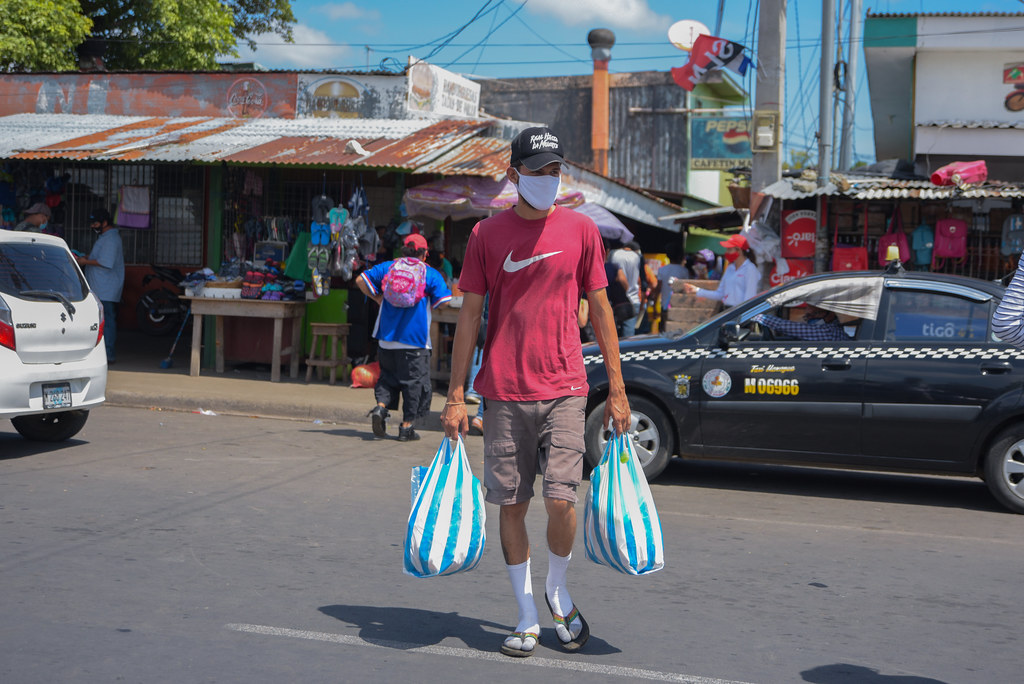
A man does his groceries in the city of Managua, while protecting himself with a face mask. Photo: Confidencial
Moody’s, the international risk rating agency, warned that Nicaragua will be the only Central American country that will not grow economically in 2021.
For 2020, Moody’s estimates that the Covid-19 pandemic will cause an economic contraction of 3.5 percent in the Central American region.
According to the agency, the economies of Nicaragua, El Salvador, and Costa Rica will contract between 4% or more in 2020; while the fall in Panama, Guatemala, and Honduras will be between two and three percent.
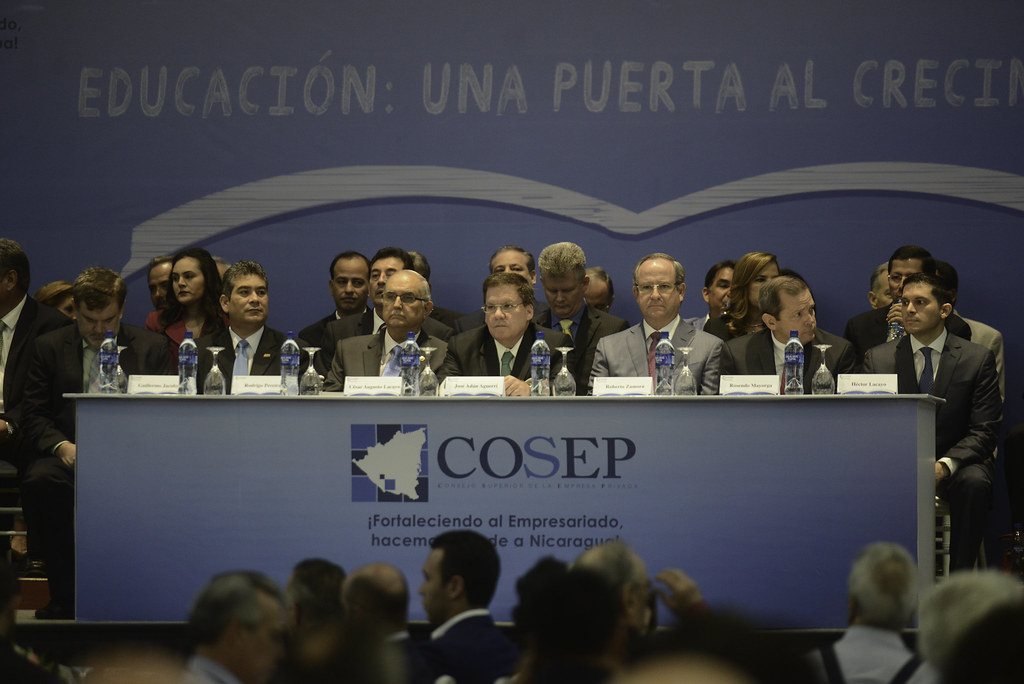
Members of COSEP in an award event back in September 2016. Photo: Confidencial
Sources linked to the private sector chambers assured that, at this moment, there is an eight-vote tie between Mario Hanon, president of the Nicaraguan Association of Formulators and Distributors of Agrochemicals (ANIFODA), and Michael Healy, former president of the Union of Agricultural Producers (UPANIC), for the presidency of the Superior Council of Private Enterprise (COSEP).
The election will be decided by five chambers that have yet to determine which of the two candidates will get their support, and a sixth chamber that usually does not exercise its right to vote.
Meanwhile, the current president of COSEP, José Adán Aguerri, will announce until the last moment, that is, on September 8th itself, whether or not he will run for re-election, after having spent thirteen years in office.
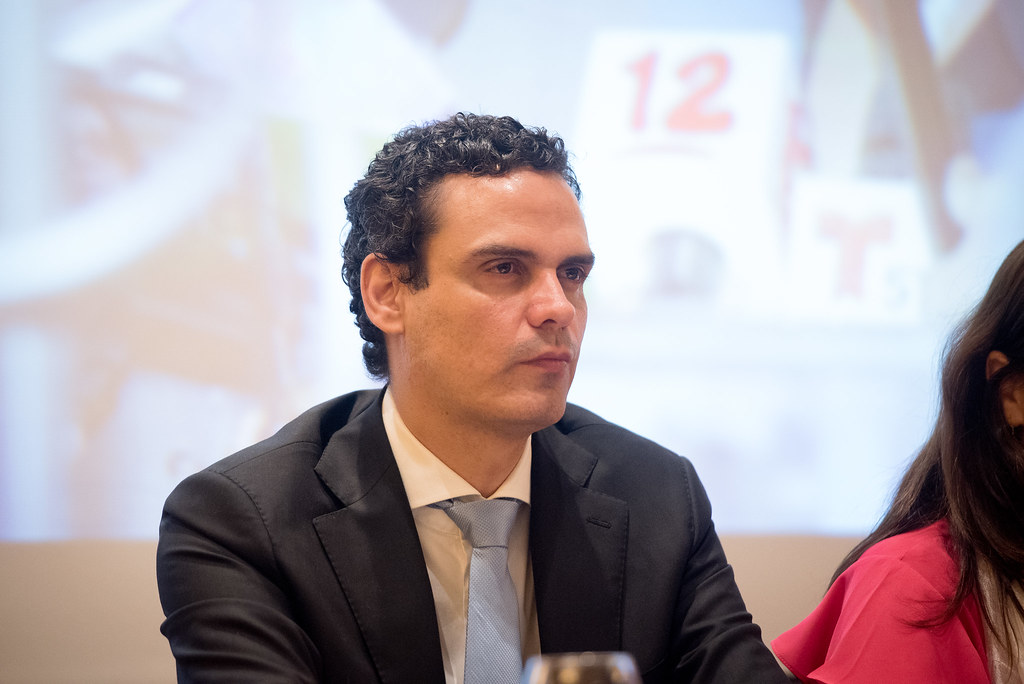
The executive secretary to the Inter-American Court of Human Rights (IACHR), Paulo Abrão. Photo: Confidencial
Luis Almagro, secretary-general of the Organization of American States (OAS), decided not to renew the mandate of the executive secretary to the Inter-American Court of Human Rights (IACHR), Paulo Abrão, which has created a schism within this regional organization.
Almagro indicated that Abrão has 61 allegations against him, some of them for conflict of interest, differential treatment, retaliation, and violations of the code of ethics.
International and Nicaraguan organizations have harshly criticized the Secretary General’s decision, as they consider that it undermines the autonomy and independence of the entity. Antonia Urrejola, vice president of the IACHR, assured that the removal of Abrão is a political decision and highlighted that it comes nine months after the renewal of his mandate.
“If there are indeed serious accusations against Paulo Abrão, and we have a permanent relationship with the secretary-general, the truth is that before arriving at the situation that we are in today, we should have been informed of specific complaints, obviously protecting the confidentiality of the alleged victims,” declared Urrejola.
This article has been translated by Ana Maria Sampson, a Communication Science student at the University of Amsterdam and member of our staff*
Archivado como:
PUBLICIDAD 3M
Confidencial es un diario digital nicaragüense, de formato multimedia, fundado por Carlos F. Chamorro en junio de 1996. Inició como un semanario impreso y hoy es un medio de referencia regional con información, análisis, entrevistas, perfiles, reportajes e investigaciones sobre Nicaragua, informando desde el exilio por la persecución política de la dictadura de Daniel Ortega y Rosario Murillo.
PUBLICIDAD 3D